Today, September 8, we celebrate the feast day of Saint Adrian of Nicomedia (also known as Hadrian, died 306), Martyr of the Church. Adrian was a military officer who found himself instrumental in the persecution of Christians under Emperor Maximian. Moved by the faith and courage of the Christian martyrs he oversaw, Saint Adrian was converted upon the spot, imprisoned, tortured, and martyred.
According to pious legend, Saint Adrian was an officer of the Roman Herculian Guard (the Praetorium), stationed at the imperial court of Nicomedia. He had achieved great rank and station given his young age of 28. The emperor of the time, Galerius Maximian, had offered a bounty on the heads of any Christians brought to trial, and many were rounded up. Twenty-three Christians were trapped in a cave outside the city, and were tortured and brought before the Praetorium for trial.
Adrian, the head of the Guard, watched as these Christians held to their faith, suffering with courage and confidence in the Lord . Seeing how firmly and fearlessly they confessed Christ, he asked of them:
"What rewards do you expect from your God for your suffering?"
The holy men and women on trial replied: "Such rewards as we are not able to describe, nor can your mind comprehend.”
Upon hearing this, Adrian told the scribes recording the proceedings, "Write my name down here also, for I am a Christian and I die gladly for Christ God.”
The scribes hurried to report this confession to the emperor, who summoned Adrian before him. Incredulous that one of his honored guards would embrace the Christian faith, he asked, "Really, have you gone mad, that you want to die? Come, cross out your name from the list and offer sacrifice to the gods, asking their forgiveness.”
Saint Adrian answered, "I have not lost my mind, but rather have I found it.”
By orders of the emperor, he was thrown into prison, his fate to be determined. Saint Adrian’s wife, Natalia, came to visit him (dressed as a boy to avoid detection), knowing that he was to suffer for the faith he believed in. She, too, had embraced the Christian faith, and encouraged him, saying:
"You are blessed, my lord, because you have believed in Christ. You have obtained a great treasure. Do not regret anything earthly, neither beauty, nor youth, nor riches. Everything worldly is dust and ashes. Only faith and good deeds are pleasing to God.”
Saint Adrian was subsequently tortured most cruelly, while his wife observed, offering prayers and encouragement. The emperor, who was fond of the young officer, advised him to have pity on himself and call on the gods, but the martyr answered: "Let your gods say what blessings they promise me, and then I shall worship them, but if they cannot do this, then why should I worship them?"
The executioner ordered Adrian’s hands and legs to be broken on the anvil. Following this, he was hacked to pieces with swords and axes. Following torture and death, the bodies of the martyrs were taken outside the city to be burned, but a fierce storm arose, and many of the executioners attempting to burn the bodies were struck down by lightening. The rains accompanying the storm extinguished the flames, and Adrian’s wife, Natalia, rescued the hand of her husband and kept it at home. Later, local Christians buried Adrian’s body on the outskirts of Byzantium, at Argyropolis (near Constantinople).
The lives of Saint Adrian and his faithful wife, Natalia, reminds us that the Lord is always calling us to conversion—and sometimes that call may come in the most unlikely of places form the unlikeliest of people. Together, with the encouragement of those around us, we must open ourselves to the call of faith, growing deeper in our relationships with the Lord, and witnessing that faith to those we encounter.
Year 2: Day 250 of 365
Prayer Intentions: True conversion.
Requested Intentions: For the healing of impaired vision (F); For a couple experiencing difficulties (L); Successful employment after finishing college (M); Mother’s health (A); Financial security, freedom from anxiety (S); For a son and cousins (L); Peace and civility (B); Successful examination results (D); Safety of family, strength, courage, wisdom (C); For the souls of a departed father and brother, finding of a suitable marriage partner (R); Successful pilgrimage, deepening of prayer life (R); Restoration of health (J); Restoration of health (S); Freedom from pride (A); For children and marriage (M); For the birth of a healthy baby (Y); For personal family intentions, for the sick, poor, hungry, and homeless (G); Financial security and peace (J); Grace, peace, and obedience to the will of God in a marriage (H); Successful and blessed marriage for sin, freedom from anxiety for husband, spiritual contentedness for family (N); Employment and health for a husband (B); Recovery and health of a mother (J); For a family to grow closer to the Church, salvation for all children (D); Successful employment (L); Successful employment (S); Renewal of faith life (A); Support for an intended marriage, health for friend and aunt (J); Mental health assistance for son (G); Freedom from illness (S); Successful employment (C).
Why pray the Rosary every day for a year?
Each time the Blessed Virgin has appeared-- whether it be to Saint Bernadette Soubirous at Lourdes; to Lucia, Jacinta, and Francisco at Fatima; or to Mariette Beco at Banneux-- she has asserted the importance, saving grace, and power of praying the Holy Rosary on a daily basis. Based upon her words, the Rosary is penance and conversion for sinners, a pathway to peace, an end to war, and a powerful act of faith in Jesus Christ. Pope Paul VI presented the Rosary as a powerful means to reach Christ "not merely with Mary but indeed, insofar as this is possible to us, in the same way as Mary, who is certainly the one who thought about Him more than anyone else has ever done."
To show us how this is done, perhaps no one has been more eloquent than the great Cardinal Newman, who wrote: "The great power of the Rosary consists in the fact that it translates the Creed into Prayer. Of course, the Creed is already in a certain sense a prayer and a great act of homage towards God, but the Rosary brings us to meditate again on the great truth of His life and death, and brings this truth close to our hearts. Even Christians, although they know God, usually fear rather than love Him. The strength of the Rosary lies in the particular manner in which it considers these mysteries, since all our thinking about Christ is intertwined with the thought of His Mother, in the relations between Mother and Son; the Holy Family is presented to us, the home in which God lived His infinite love."
As Mary said at Fatima, "Jesus wants to use you to make Me known and loved. He wishes to establish the devotion to My Immaculate Heart throughout the world. I promise salvation to whoever embraces it; these souls will be dear to God, like flowers put by Me to adorn his throne."

Subscribe to:
Post Comments (Atom)






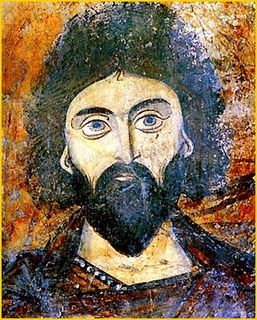
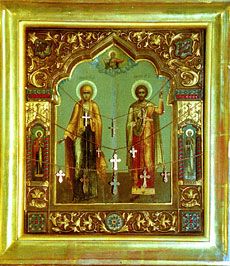
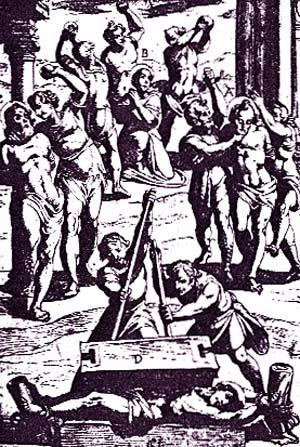
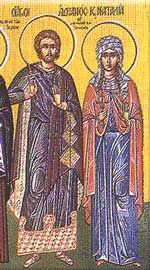
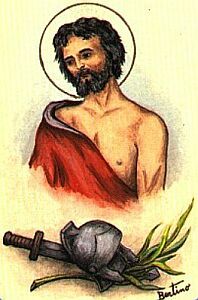

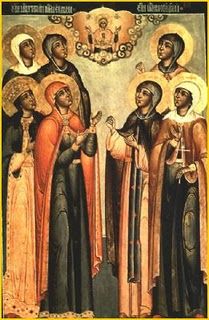
0 comments:
Post a Comment
Thanks for leaving a comment. If you wish to submit a prayer request, however, please do so above, using the "Contact" tab.